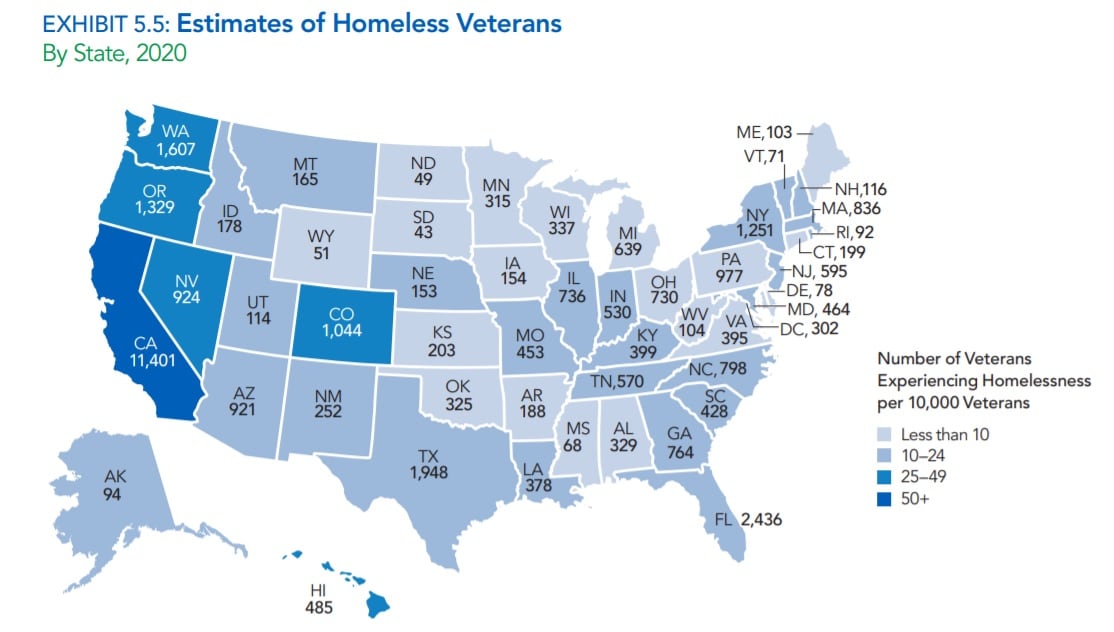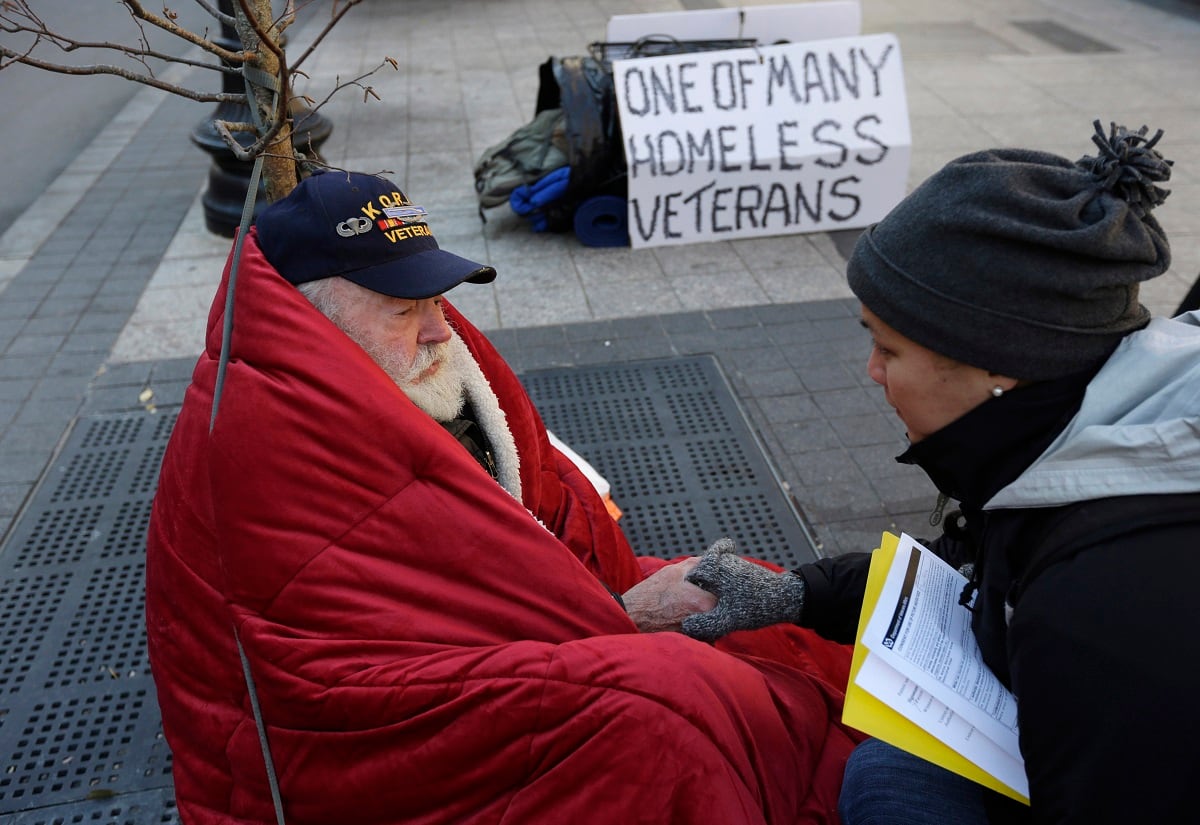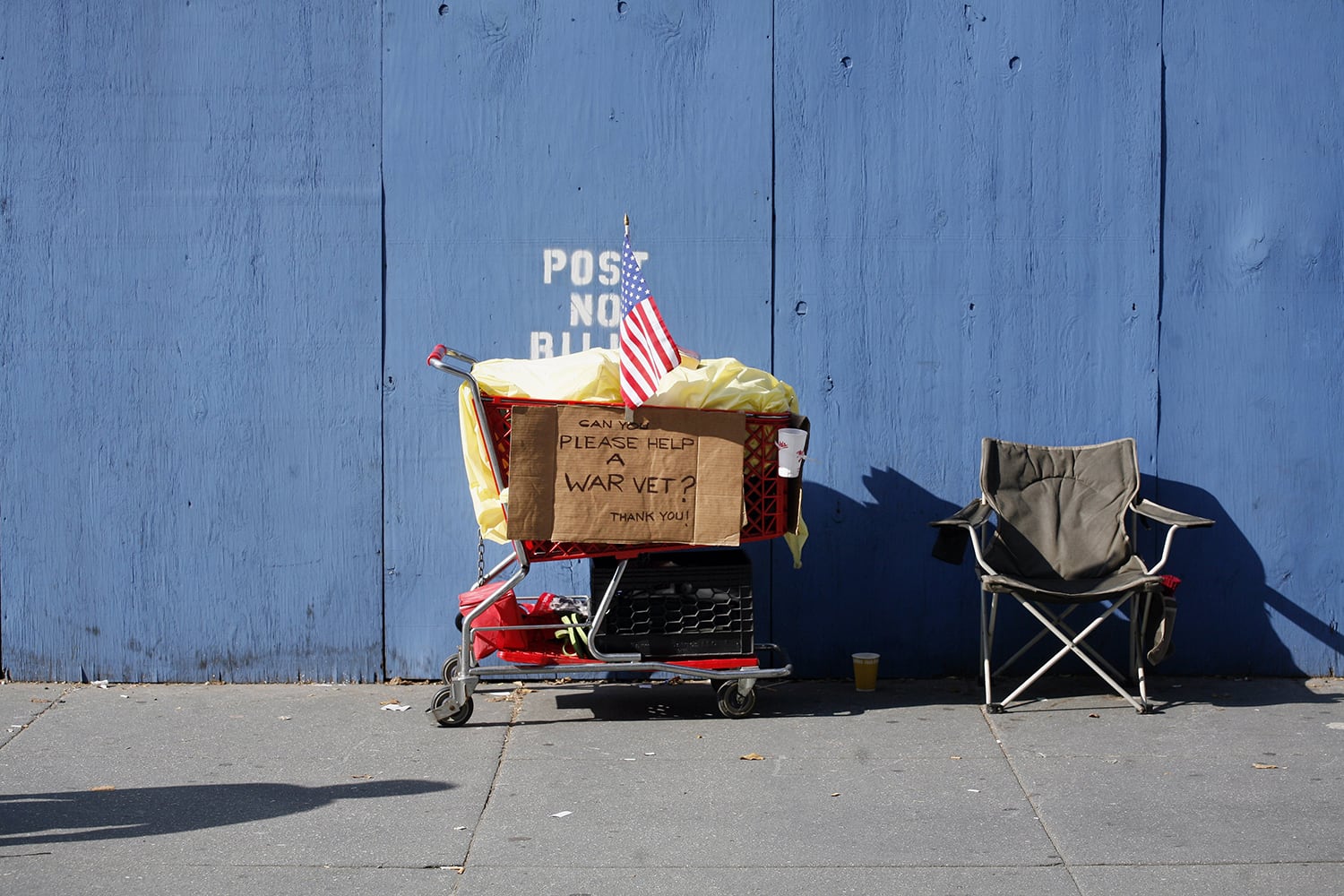The end of pandemic financial protections coupled with the lingering housing challenges of recent years could lead to “an unprecedented wave of veterans homelessness” in coming months, advocates warned lawmakers on Wednesday.
They’re pushing for more resources to help those vulnerable veterans but also intervention from federal and local officials to maintain those protections for a little longer, to prevent a potential tragedy.
“We shouldn’t necessarily be ending these eviction moratoriums and foreclosure breaks,” said Kathryn Monet, chief executive officer for the National Coalition for Homeless Veterans. “I don’t think the economy has recovered to a point where people are able to cover all of these expenses.
“We need to continue doing this, not forever, but until people can get back on their feet.”
RELATED

But that idea received pushback from some Republicans on the House Veterans’ Affairs Committee, who argued that as communities reopen after months of pandemic restrictions, business practices and regulations must return to normal.
And Veterans Affairs officials said that despite the looming challenges, they are optimistic about the opportunities ahead to finally end veterans homelessness in America.
“We have the expertise and experience that generated significant declines in veteran levels of homelessness in the past, we have leadership commitment and support, and we have unprecedented resources and statutory flexibility,” Keith Harris, director of clinical operations of VA’s Homeless Programs Office, told committee members.
“Now is the time to recapture momentum and finish the job.”
Federal officials in 2010 set the goal of ending chronic veterans homelessness in the United States. The levels dropped by nearly half from 2010 to 2016.
But the figures have largely plateaued since then, and in March officials from the Department of Housing and Urban Development announced that the number of veterans without stable housing across the country rose slightly from 2019 to 2020, to about 37,250 individuals.
That estimate was compiled before the start of the coronavirus pandemic, which caused unemployment levels to spike and shuttered many outreach efforts to veterans facing financial issues.
As a result, most federal researchers and outside advocates are predicting an even larger rise in the homelessness figures this year, though have not predicted just how high the numbers may rise. HUD’s estimate for early 2021 is expected to be released sometime this fall.
Monet and other advocates warned that coming months will be a critical time for the community, and that rushed or incomplete support programs could easily result in increases in homelessness levels in communities that had nearly solved the problem over the last decade.
VA officials have requested more than $2.6 billion for homeless prevention and support programs in the fiscal 2022 budget, an increase of about 14.5 percent.
But advocates said that the amount of money dedicated to case management in the budget plan is still too low to handle current levels, and lamented that thousands of housing vouchers have gone unused in recent months because of housing placement challenges.
“Having vouchers sitting un-utilized is a terrible waste of funding,” Money said.
RELATED

Harris said VA officials are working to better use those funds and improve existing services. VA is looking to expand shelter programs and employment assistance, as well as more health care services for veterans.
But he also acknowledged that changes in community financial protections could have a negative impact on the department’s efforts.
“It’s impossible to do an accurate forecast for the impact of that,” he said. “We’re as concerned as anyone about the possible impact of lifting eviction moratoriums, but we’re also prepared to face that.”
Officials may not fully grasp the extent of the problem until well into the future.
HUD’s annual veterans homelessness estimates are based largely off of surveys and in-person counts conducted each January. That means the 2021 figures due out this fall will be based on conditions from before pandemic re-openings restarted.
The impact of changes in eviction moratoriums and debt collection delays won’t be reflected until the 2022 homeless estimates due out in fall of next year. Advocates warn that by then, making needed changes to provide additional support to vulnerable veterans may be months too late.
Leo covers Congress, Veterans Affairs and the White House for Military Times. He has covered Washington, D.C. since 2004, focusing on military personnel and veterans policies. His work has earned numerous honors, including a 2009 Polk award, a 2010 National Headliner Award, the IAVA Leadership in Journalism award and the VFW News Media award.




